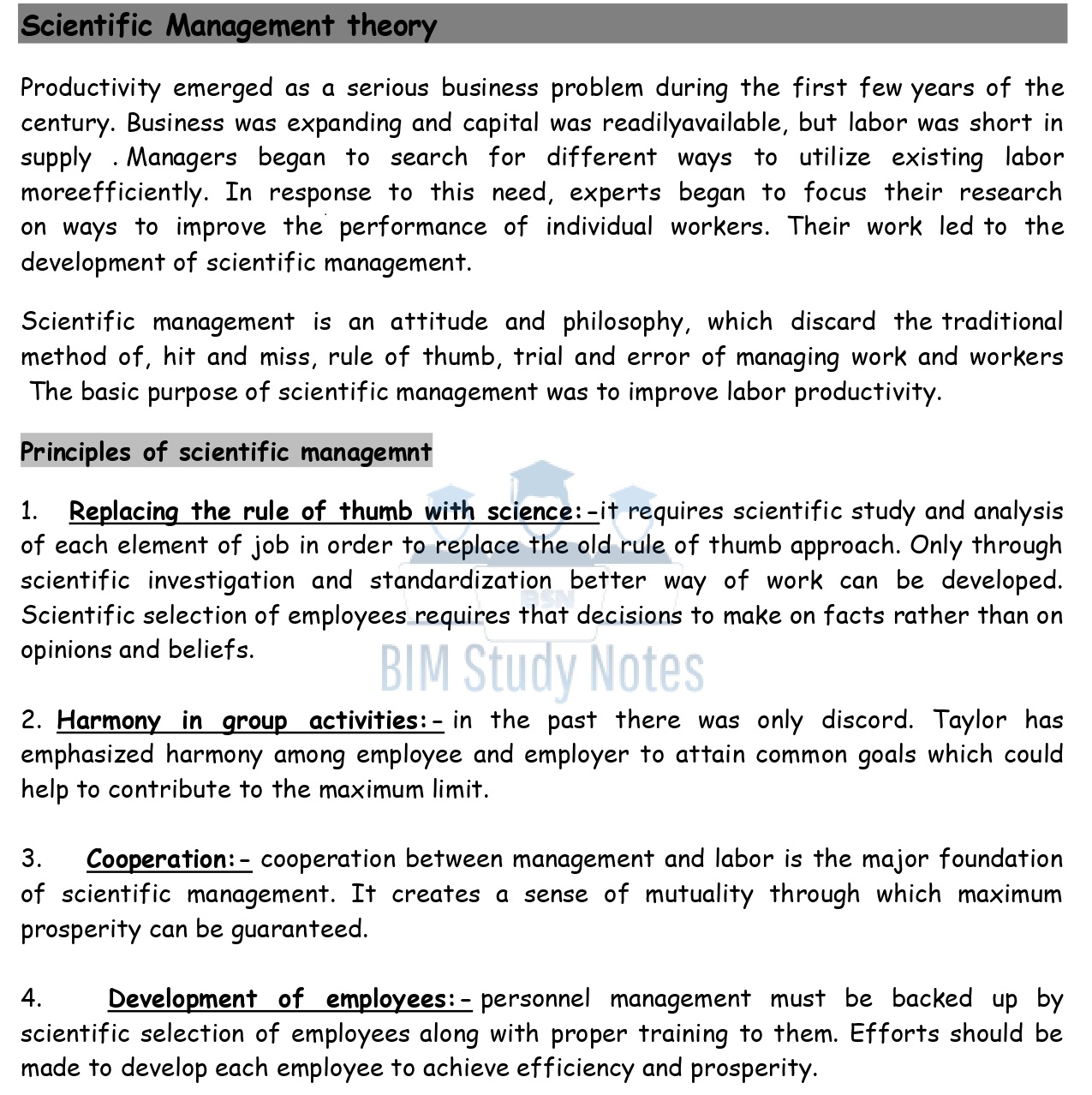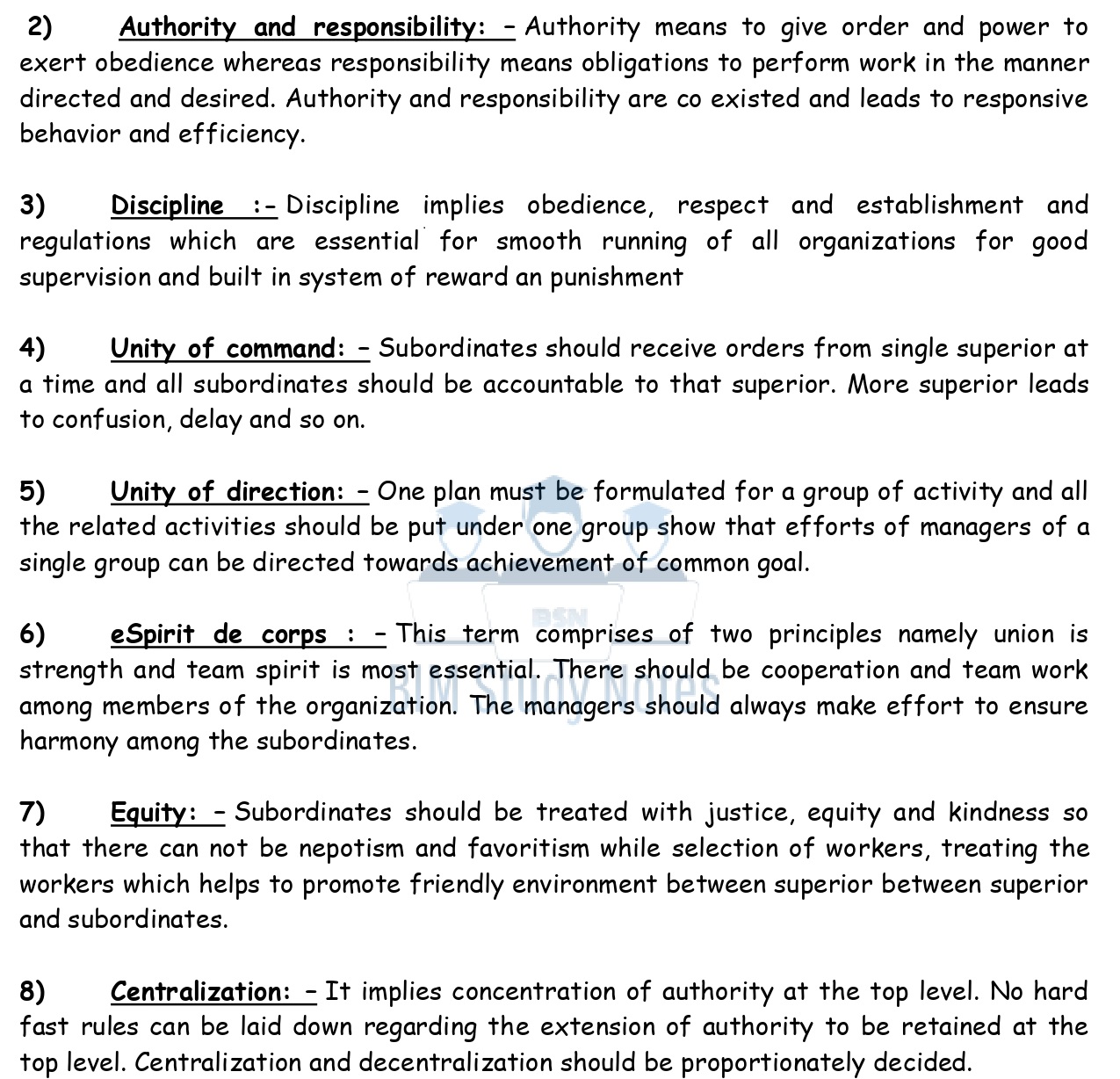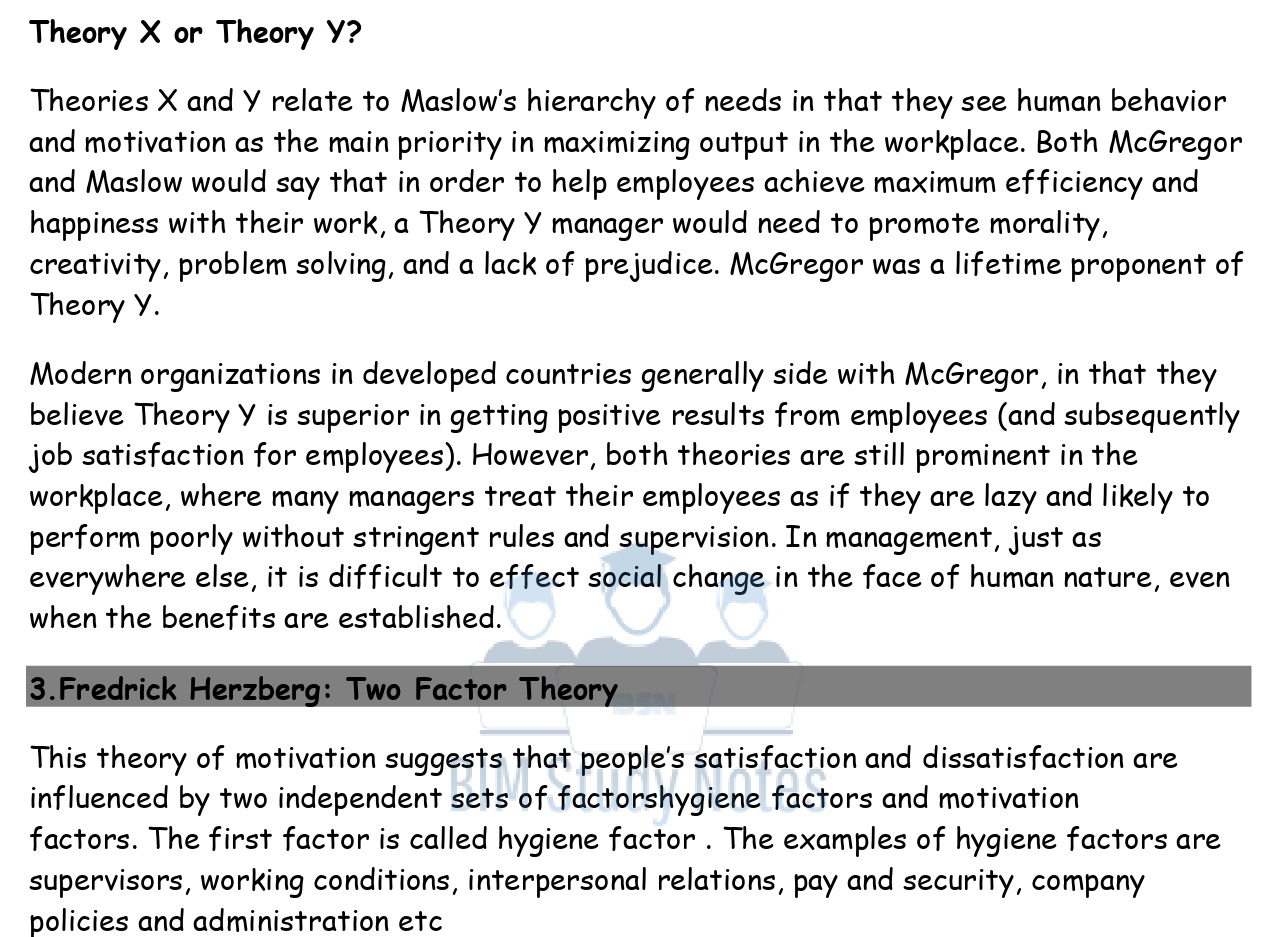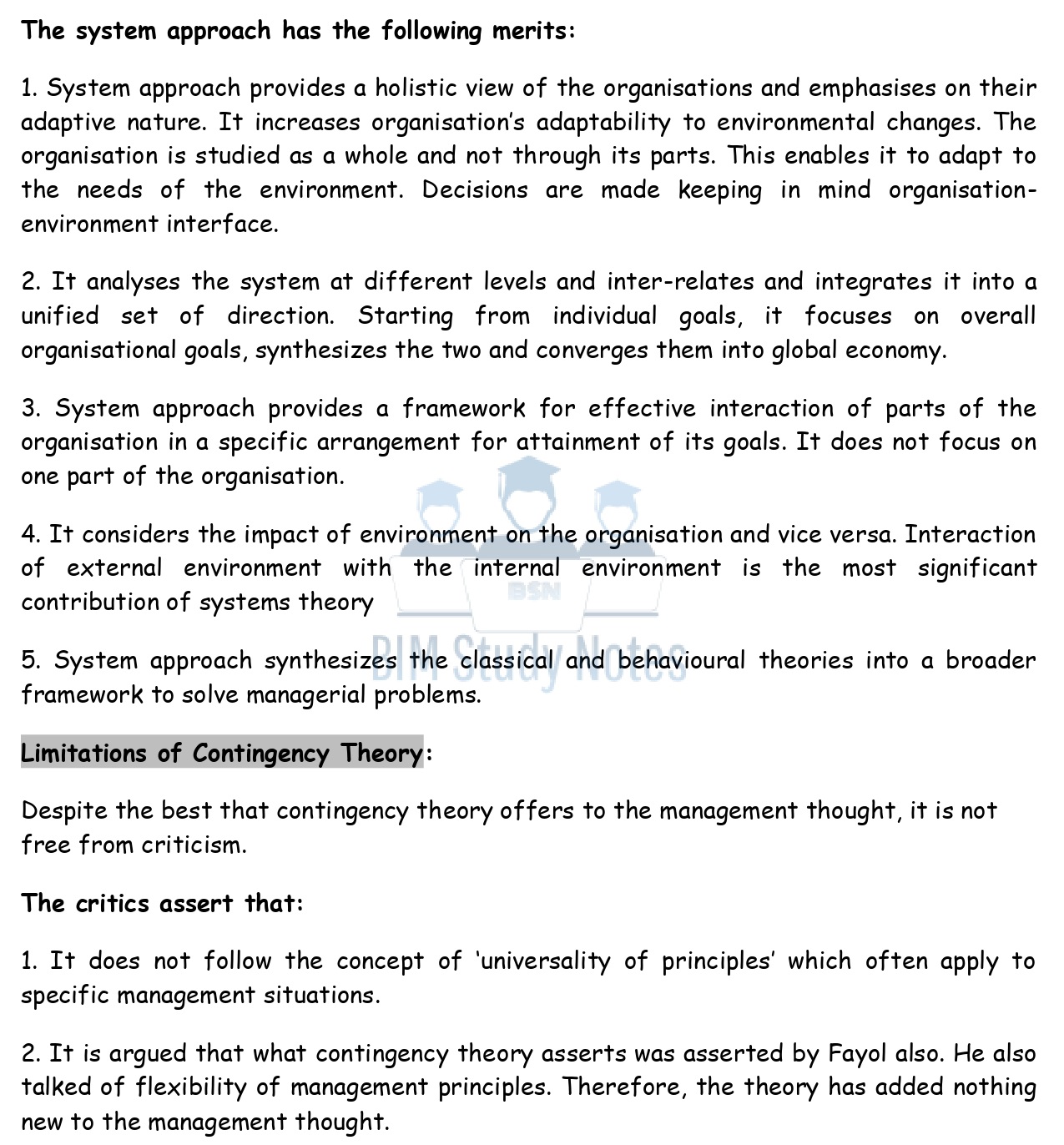The evolutions of philosophical aspect of Management can be divided into following categories :-
-
Classical Theory
-
Behavioral Theory
-
Quantitative Theory
-
system & Contingency Theory
-
Decision Theory
1. Classical Theory
The classical management theory was introduced during the Industrial Revolution as a way to improve productivity within factories and other businesses. While less common in today’s society, this type of management may still provide benefits for some organizations. In this article, we will discuss what the classical management theory is as well as the pros and cons of this form of management in the modern workplace.
Following are important theories from classical theories
A) Scientific Management Theory
Administrative Theory
Bureaucracy theory





2.


















The Decision Theory:
Herbert Simon, Luther Gulik, and Lyndall Urwick have been the major contributor to this management thought. This theory focuses on managerial decisions. Decisions are made through rational choice among different alternatives available. It is a choice-making activity and choice determines our activity.
Herbert Simon’s (One of the major contributors of decision theory) model is based on two concepts
-
Bounded rationality: rational decision making is constrained by the limitation of knowledge, resource, etc.
-
Satisficing: Maximization is not possible in decision making. The decision makes should “satisfice” and achieve the satisfactory outcome administrative man always satisfice.
This theory advocates that decision making should be rational. The rational approach to decision making should involve the following steps:
-
Define the problems
-
Identify relevant alternatives
-
Evaluate the alternatives.
-
Select the best course of action
-
Implement the action
-
Evaluate the result of the action
Contribution:
-
In the field of management the decision theory provides guidelines for the manager to make a decision and solve problems.
-
This theory provides the “science” of improved organizational decision making through quantitative methods.
-
The theory makes the path for studying the process by which administrative organization makes decisions.
Limitations:
-
It does not take a total view of management. Its scope is limited.
Emerging issues & Challenges in Nepalese Business
There are many problems that businesses are facing in Nepal they are as follows.
-
Interference: Intereferen is the main problems of management in Nepal. Government and political leaders interfere in the management of public enterprises of Nepal. Similarly members of greater share holders family interfere in the management of private firm. Such interference is found in all the managerial functions like planning, organizing and controlling.
-
Lack of finance: The other management problems of major industries is the lack of necessary financial resource. It is difficult to get loan from bank for industry. Banks provide loan only by taking good security. As good loan proposal is to be prepared, copy of feasibility study is to be attracted with and complex process is to be fulfilled.
-
Small market: Nepal’s market is small and limited. There is no access to all parts of the country. As small quantity of goods is to be produced for small market, the production cost reaches high.As a result the price of the goods also goes high.Since Chines and Indian goods enter Nepal at lower price, Nepalese industries cannot compete with the Chines and Indian goods.This also has shrunken the market of Nepalese industries.So small market is also a problem for management.
-
Lack of mutual trust: There is dearth of mutual trust in Nepal. Mutual trust cannot be found even among the departments, levels and employees of the organization. Due to lack of trust authority is not delegated to the lower levels.Such mistrustful environment becomes detrimental to the industries. Similarly such mistrust is found between public and private sectors.The government plays only the role of controller rather than helper. So lack of trust has remained as great problem of management.
-
Lack of efficiency manpower: Efficient and skilled manpower cannot be found in Nepal’s labour market. Labour is supplied from the crowed of unskilled and inefficient people.This creates a problems in management.Only traditional labour from agriculture sector is supplied to industrial sectors.Totally inexperienced and unknown persons are to be employed and make them experienced. So this is also a management problem.
-
Lack of technical knowledge: The manager working in organization should have technical knowledge. But the manager working in the business of Nepal have not got technical knowledge. Because of the absence of technical knowledge in other employees, except the related ones, organizational performance cannot be effective.So the lack of technical knowledge in employees is also a great problem for management.
-
Labour problems: Labour organization gives pressure on management to fulfil their interest by holding demonstration, calling for strike, locking up, sit in etc. As the leaders of labour organization are affiliated to political parties and leaders, the labour organization becomes strong. The ,management is compelled to compromise with the labour organization even against interest of the enterprise or organization.
-
Lack of infrastructure:The infrastructure such as transport, communication, electricity, water supply etc become necessary for industrialization.But these infrastructure are not available properly.So this is also a great problems for management.
